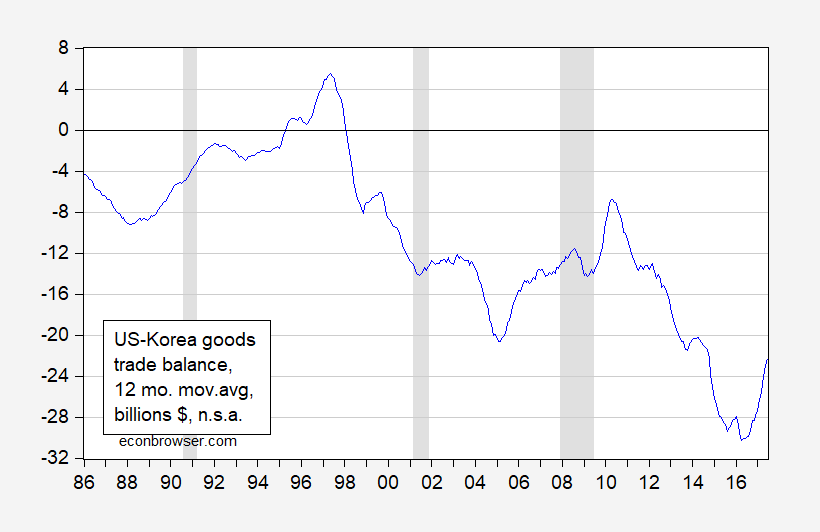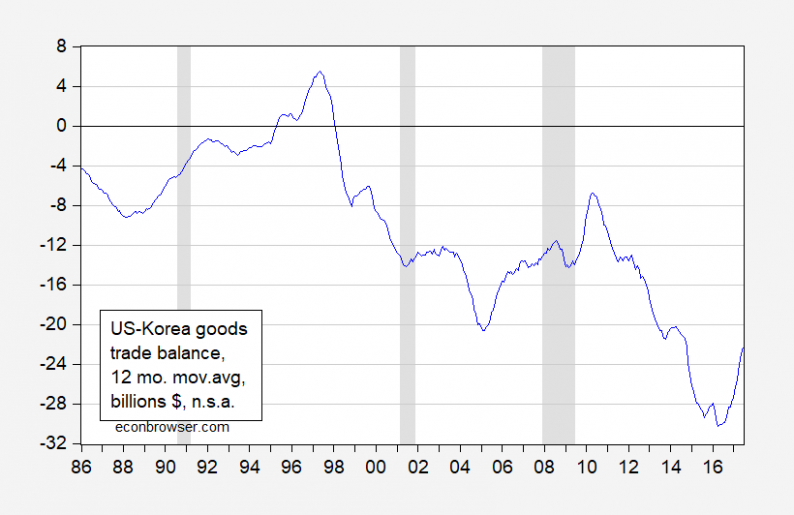From Reuters:
President Donald Trump on Saturday said he would discuss the fate of a five-year-old U.S.-South Korean free trade deal with his advisers next week, in a move that could see him pull out of the accord with a key American ally at a time of heightened tensions on the Korean peninsula.
This seems to me an ill-advised action, if undertaken, even on solely economic grounds.
First, the US-Korea goods trade balance is improving:

Figure 1: US-Korea goods trade balance, 12 month moving sum, in billions of US dollars, not seasonally adjusted. Source: BEA/Census via FRED, and author’s calculations.
Second, the US-Korea goods trade balance is not really relevant macroeconomically, and hence in terms of overall output and employment.

Figure 2: US-Korea bilateral goods trade balance, n.s.a. (blue), and US net exports of goods and services (red), both as share of GDP. NBER defined recession dates shaded gray. Source: BEA/Census for US-Korea trade, BEA NIPA 2017Q2 2nd release for net exports, and author’s calculations.
This is not to argue we couldn’t have more aggregate demand redistributed to the US — in my recent paper on global imbalances I argue that in fact it would be desirable for the US to have a smaller current account deficit. But that is overall, with respect to the rest of the world. (Korea should probably have a smaller current account surplus than the 6.2% of GDP projected by the IMF back in April, but US tariffs on Korean exports are likely to have second order effects on the macro aggregates key to determining the current account.)
But, the President has stated: “I want tariffs. Bring me some tariffs!” This measure would be consistent with that policy stance.











Leave A Comment